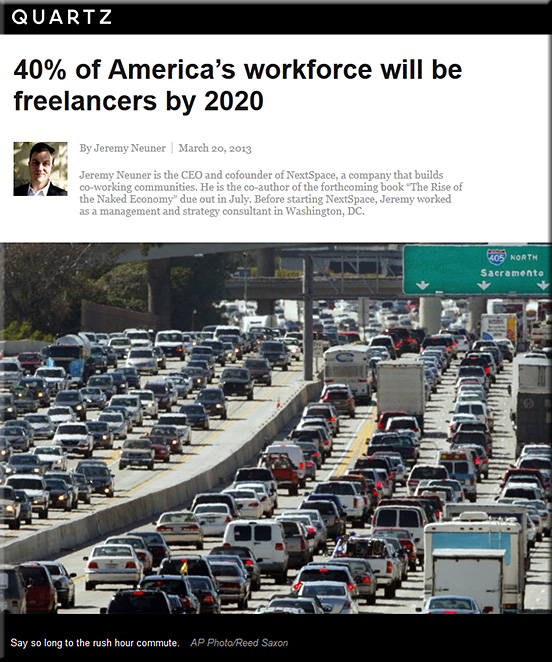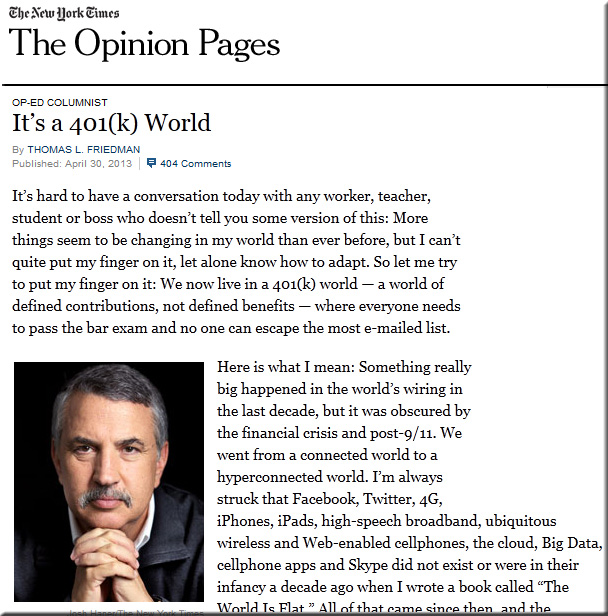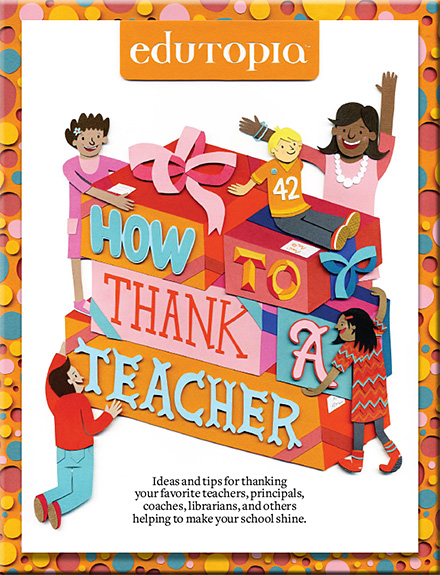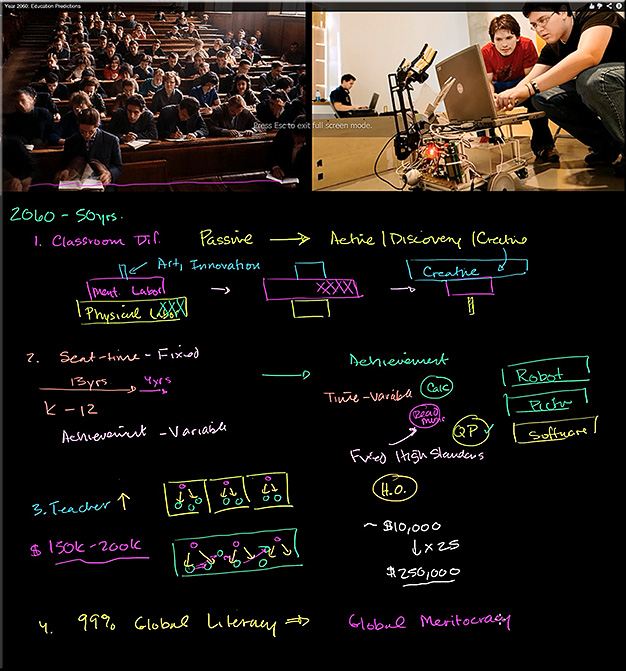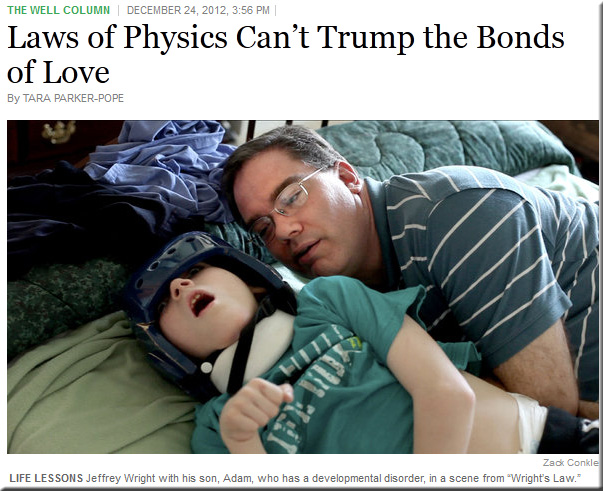Example slides from
Will Richardson’s solid presentation at ISTE 2013, entitled ” Abundant Learning: Four newish ideas for powerful classrooms”
From DSC:
This idea of self-directed/owned learning is spot on — and not just for those in K-12, but also for those in higher education and for those in the corporate world as well! It unleashes an enormous amount of intrinsic energy, motivation, drive, grit.
Each person needs to own and build their learning ecosystem — identifying one’s gifts, talents, passions, interests and then going out and developing those things. If we each do what we do best, the whole world benefits. As we will need others along the way — a team-based approach, communities of practice, and several of the other things/skills Will alluded to will be very important as well.











